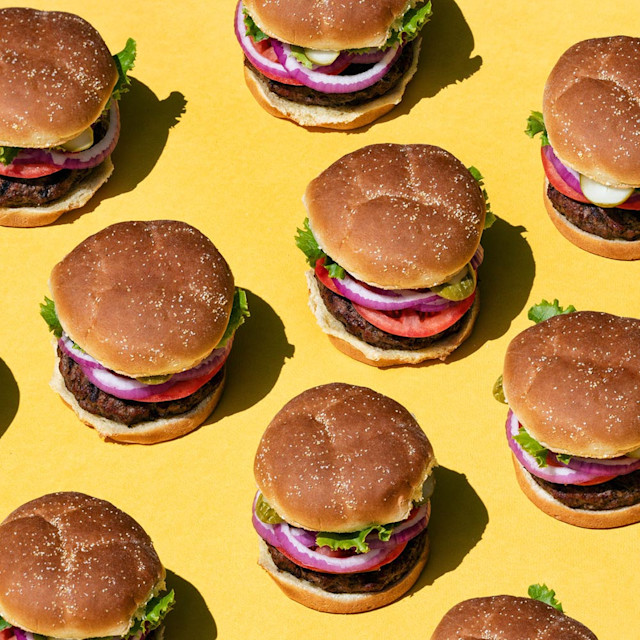Is it healthier than animal proteins are?
In Cost-benefit analysis, experts explain whether the pros of widely adopted health trends outweigh the cons—or vice versa.
The trend: plant-based “meat”
The costs:
This creative take on food engineering requires a laundry list of ingredients. Most options contain pyridoxine hydrochloride (a water soluble B vitamin) and cultured dextrose, an additive that extends the shelf life of processed foods.
That’s an important fact to keep in mind: While animal-derived meats are whole foods, vegan versions are highly processed. For example, products from many brands (like the Impossible Burger) are made with soy protein. Though soy is a viable plant-based option, you still miss out on many of the nutrients it provides in its natural form. “It’s hard for the body to recognize foods when they’re broken down,” says Lisa Mueller, a Capbreton, France-based private chef for athletes.
The benefits:
Plant-based burgers successfully imitate the texture and flavor of real meat, and they can offer a considerable amount of protein. The Impossible Burger, for example, has 19 grams per four-ounce serving compared to about 27 grams for a beef burger. While that seems like a significant drop, Christopher Gardner, professor of medicine at Stanford University in California, notes that most Americans get twice as much protein as they need.
These vegan options are also free of antibiotics. That’s not true of most meats. Farmers and manufacturers notoriously feed their cattle and other animals drugs to make them grow faster and bigger. The additives stick around in the final product and can lead to antibiotic resistance, an issue you don’t have to worry about with lab-made products or high-quality beef.
From an environmental perspective, the impacts of vegan and animal meats are night and day. It takes thousands of gallons of water to produce one pound of conventional meat. Those agricultural practices are massive contributors to global warming, Gardner notes, and livestock specifically is responsible for 14.5 percent of greenhouse gas emissions.
The final analysis:
At this stage, there isn’t enough science to confirm that vegan meat is any better for you than real meat is, Mueller says. Don’t make the swap under the guise that it’s healthier.
Burgers should be a once-in-a-while treat for everyone, regardless of dietary restrictions. When you do indulge in one, carnivores should choose high-quality meats that are locally sourced (which have lower carbon footprints) and organic (which ensures they’re free of hormones and other additives). For health purposes, vegetarians and vegans are better off eating patties made with whole foods like sweet potatoes, beans, brown rice, and quinoa. The more ingredients you can identify after cutting into the patty, the better, Mueller notes.
